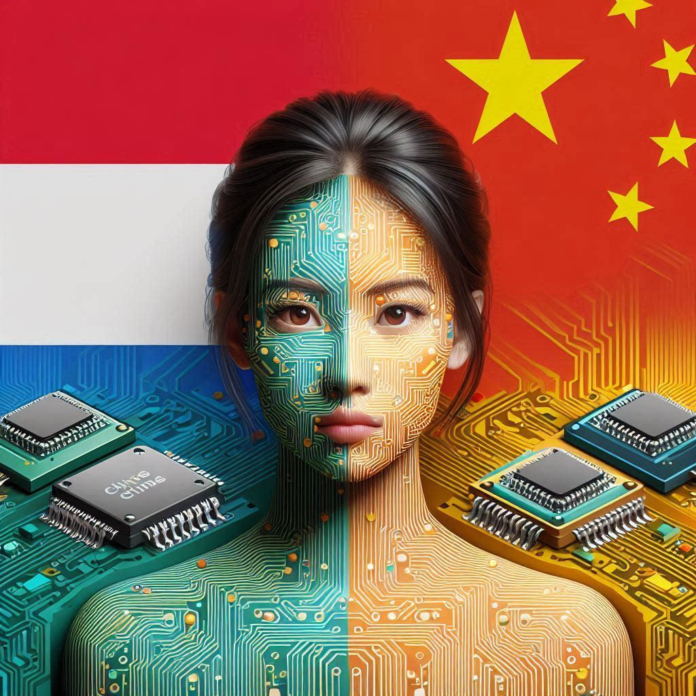The Netherlands has recently made a decision that could cause significant trouble for China’s ambitions to become a leader in the global semiconductor industry. This decision centers around ASML Holding NV, a company from the Netherlands that provides crucial equipment for making computer chips. The Dutch government is considering not renewing certain licenses that allow ASML to service and maintain its advanced machines in China. This move could severely impact China’s ability to continue developing its chip-making technology.
What’s Happening with ASML’s Equipment?
ASML is known for its high-tech machines used in producing semiconductor chips. These machines are essential for making the tiny circuits found in almost every modern electronic device, from smartphones to computers. ASML’s most advanced machines use something called deep ultraviolet (DUV) lithography technology. This technology is vital for producing high-quality chips.
The Dutch government is expected to stop ASML from renewing licenses that allow the company to provide maintenance and spare parts for its DUV machines in China. Without these licenses, ASML will no longer be able to support its equipment in China. This could lead to problems because the machines are very complex and need regular upkeep to function properly. If they break down and cannot be repaired, it could halt chip production and create big problems for companies relying on this equipment.
Why Is This a Big Deal for China?
China has been working hard to build its own semiconductor industry to compete with the leading technology companies worldwide. The country has struggled to develop its own advanced chip-making machines, and it relies heavily on foreign companies like ASML for high-tech equipment. While China has been able to use ASML’s DUV machines, it has not been able to buy the company’s most advanced extreme ultraviolet (EUV) machines, which are used to make the very latest chips.
China Retaliates Against US Sanctions: Critical Minerals Restrictions Shake the Chip World
The decision by the Dutch government could be very damaging to China’s technology goals. Many Chinese tech companies, including major players in the semiconductor industry, depend on ASML’s equipment to make their chips. If they cannot get maintenance or spare parts, their machines might not work properly, leading to fewer chips being produced. This setback could make it even harder for China to improve its technology and compete on a global scale.
Tech War Strategy : US Allies Japan and Netherlands Target China’s AI Chip Development
How Does This Affect China’s Semiconductor Industry?
China’s semiconductor industry is crucial for its technology sector. Chips are used in everything from smartphones to computers to cars, and having advanced chip-making technology is important for staying competitive. Chinese companies, such as those involved in making smartphones and other high-tech gadgets, need advanced chips to keep up with global trends and demands.
US Restrictions on AI Chips is Innovative Mechanism of Sanctions on China
With the Dutch government potentially stopping ASML from servicing its machines in China, these companies might face major issues. Production delays and the inability to repair broken equipment could lead to a slowdown in chip production.
Without ASML’s DUV gear, it will be increasingly difficult for Chinese technology champion Huawei Technologies Co. and its partner Semiconductor Manufacturing International Corp. to make breakthroughs in their current capability, which lags two generations behind industry leader Taiwan Semiconductor Manufacturing Co. The Hague’s move is also likely to impact ASML’s sales, about half of which comes from China.
In summary, the Netherlands’ recent decision to potentially cut off ASML’s support for its chip-making equipment in China is a significant blow to the country’s technological ambitions. Without the ability to maintain and repair these critical machines, China’s progress in developing advanced semiconductor technology could be severely hampered.


